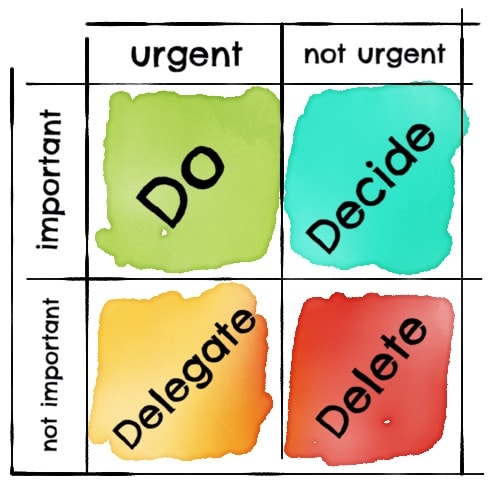Course notes: Time Management for Technical Leaders
Course notes on Patrick Kua's "Time Management for Technical Leaders"

These are my notes on Patrick Kua’s Time Management for Technical Leaders.
Main insight: plan, split scary tasks, time box and rest. Aim for a WIP of 1.
Notes
- Focus on how you can have the biggest impact with the time you have.
- Eisenhower Matrix:

- Do: emergencies, major outages, crisis, someone quitting.
- Decide:
- Manage technical debt.
- Building relationships.
- Schedule time.
- Research.
- Delegate: See Camille Fournier’s delegation matrix.
- Biorhythm: Keep track for a week on how is your energy level on each task.
- Defrag your calendar: group together similar nature tasks.
- 2 minutes rule: Do now anything that takes less than two minutes.
- Parkinson’s Law:
- “Work expands to fill the time available for its completion”.
- Time box.
- Spit into smaller tasks.
- Pareto’s Law.
- Carlson’s Law: Multitasking is bad.
- Law of Diminishing Returns (Illich’s Law): You need to rest.
- Hofstadter’s Law:
- “It always takes longer than you expect, even when you take into account Hofstadter’s Law”.
- Prepare plan B.
- Early feedback.
- On planning, think about all possible bad scenarios.
- Law of The Least Effort (Laborit’s Law):
- “Human behaviour drives us to do what makes us happy first”.
- It is human nature to avoid stress.
- Eat the frog first.
- Give yourself a reward.
- Get started by baby steps.
- How to kill dead time:
- Meditation.
- Make notes.
- Call someone.
- Do nothing.
- Slack. Great book.
- Productivity Systems:
- Get Things Done:
- Open Loops:
- When you worry about when and if something is going to get done.
- Source of stress.
- Three steps:
- What is the outcome.
- What is the next step.
- Reminder.
- Bucked things per timeframe.
- Open Loops:
- Pomodoro Technique.
- Personal Kanban:
- Visualize your work.
- Limit WIP to 1.
- Get Things Done: